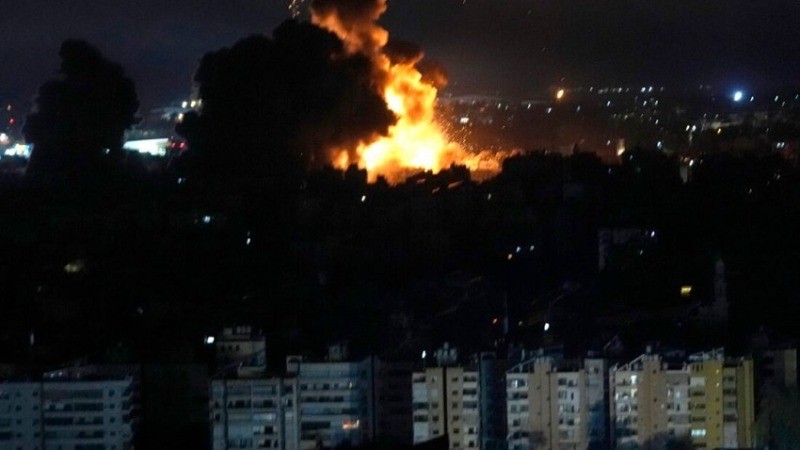
BEIRUT: Early Wednesday morning, at least one Israeli airstrike targeted the southern suburbs of Beirut. This strike occurred shortly after the U.S. voiced its opposition to the extent of Israeli military actions in the area, which have contributed to rising casualties and increased fears of regional escalation.
Witnesses reported hearing two explosions and seeing smoke rising from two different neighborhoods in southern Beirut, which is known to be a stronghold for Hezbollah. In recent weeks, the Israeli military has conducted multiple strikes in this region, often without prior warnings.
The Israeli military claimed it targeted an underground Hezbollah weapons depot in the Dahiyeh suburb. They stated that they had taken numerous precautions to minimize civilian casualties, including issuing advance warnings to residents in the vicinity.
According to the U.N. refugee agency, Israeli evacuation orders are affecting over a quarter of Lebanon. This comes two weeks after Israel began incursions into southern Lebanon, which it claims are aimed at countering Hezbollah's influence.
Western nations have been advocating for a ceasefire between Israel and Lebanon, as well as in Gaza. However, the U.S. continues to express support for Israel and has announced the deployment of an anti-missile system and troops to the region.
U.S. State Department spokesperson Matthew Miller conveyed concerns to Israeli Prime Minister Benjamin Netanyahu regarding the recent airstrikes. He emphasized that the U.S. opposes the extensive bombing campaign seen in Beirut over the past few weeks, marking a more critical stance than previously adopted by Washington.
The last major airstrike in Beirut occurred on October 10, resulting in the deaths of 22 people and the destruction of entire buildings in a densely populated area.
Rising Regional Tensions
The situation in the Middle East has been tense since Iran launched a missile attack on Israel on October 1. This followed a large-scale operation in April, with Israel promising retaliation. Iran's allies, including Hezbollah in Lebanon and armed groups in Iraq and Yemen, have also engaged in attacks in support of Hamas during the ongoing Gaza conflict.
Iranian Foreign Minister Abbas Araqchi is currently visiting Jordan, Egypt, and Turkey to discuss regional issues and efforts to halt what Iran describes as genocide and aggression against Palestinians.
In a recent conversation with French President Emmanuel Macron, Netanyahu expressed his opposition to a unilateral ceasefire and voiced surprise at Macron’s initiative to convene a conference focused on Lebanon.
The ongoing conflict has taken a severe toll on the Lebanese population. Over the past year, Israeli strikes have resulted in at least 2,350 deaths and nearly 11,000 injuries, with more than 1.2 million people displaced. The figures include numerous women and children and highlight the significant human cost of the conflict as Israel aims to dismantle Hezbollah’s infrastructure.
MORE....
Israel's Defense Minister Vows to Eliminate Hezbollah Threat Along Border
Southern European Leaders Urge Ceasefire Following Israeli Strikes on UN Peacekeepers
Hezbollah Fires Missiles on Israeli Military Base Amid Ongoing Conflict